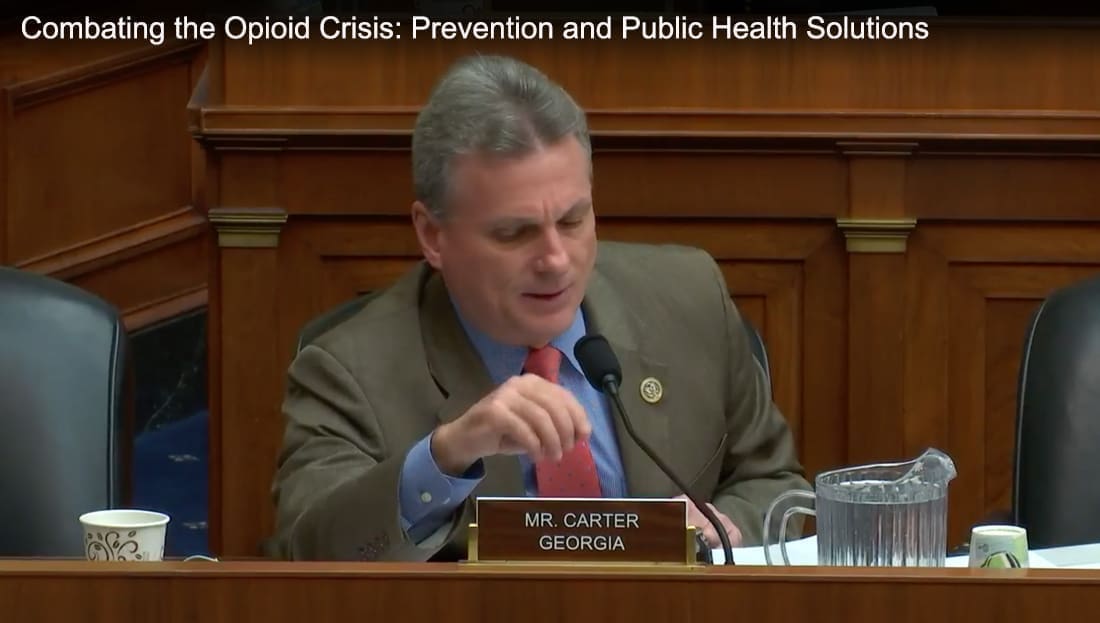
Rep. Buddy Carter (R-GA), member of the House Energy and Commerce Committee and the only pharmacist serving in Congress, during a hearing last week on combating the opioid crisis.
NACDS submitted a statement for the record to the House Energy and Commerce Health Subcommittee for its hearing, “Combating the Opioid Crisis: Prevention and Public Health Solutions.” NACDS stated an ongoing commitment to partnering with lawmakers and other stakeholders to identify and develop “holistic policies and strategies to curb prescription opioid abuse and diversion.” NACDS urged Congress to support a nationwide prescription drug monitoring program (PDMP) solution and encouraged lawmakers to support policies to foster a collaborative approach to safe and effective drug disposal for unwanted opioids.
NACDS released a statement on March 19 following the unveiling of President Trump’s new “Initiative to Stop Opioid Abuse and Reduce Drug Supply and Demand.” Several components of the president’s initiative align with NACDS’ public policy recommendations to curb the opioid crisis.
The president’s plan focuses on decreasing demand and over-prescribing by reducing nationwide opioid prescriptions by one-third within three years. It also seeks to ensure that 75 percent of opioid prescriptions reimbursed by federal healthcare programs are dispensed using best practices within three years, and 95 percent within five years. The plan aims to make sure that at least half of all federally-employed healthcare providers adopt best practices for opioid prescribing within two years—with the goal of having all of those providers in compliance within five years. Additionally, the plan will seek opioid-related federal funding opportunities to facilitate the transition to a nationally interoperable prescription drug monitoring program (PDMP) network.
NACDS also provided input to the Food and Drug Administration (FDA) last week as the agency works on policies to address the nation’s opioid crisis. NACDS participated in the agency’s Opioid Policy Steering Committee in January and outlined important policies that would curb the misuse and abuse of prescription opioids. NACDS elaborated on those recommendations in the letter.
The FDA is seeking recommendations on various initiatives, including utilizing its authorities under Risk Evaluation and Mitigating Strategies (REMS) to facilitate appropriate prescribing of opioids. In the letter, NACDS pointed to its four public policy solutions to address prescription opioid abuse. NACDS encouraged the FDA to implement a REMS that establishes a seven-day supply prescribing limit, as NACDS recommends in its policy recommendations. NACDS also expressed support for a nationwide PDMP solution that would be built along with e-prescribing technology, and mandatory prescriber and patient education.
NACDS stated, “We welcome the opportunity to work with the FDA and other stakeholders to implement policies to improve opioid prescribing practices and turn the tide in the opioid epidemic.”